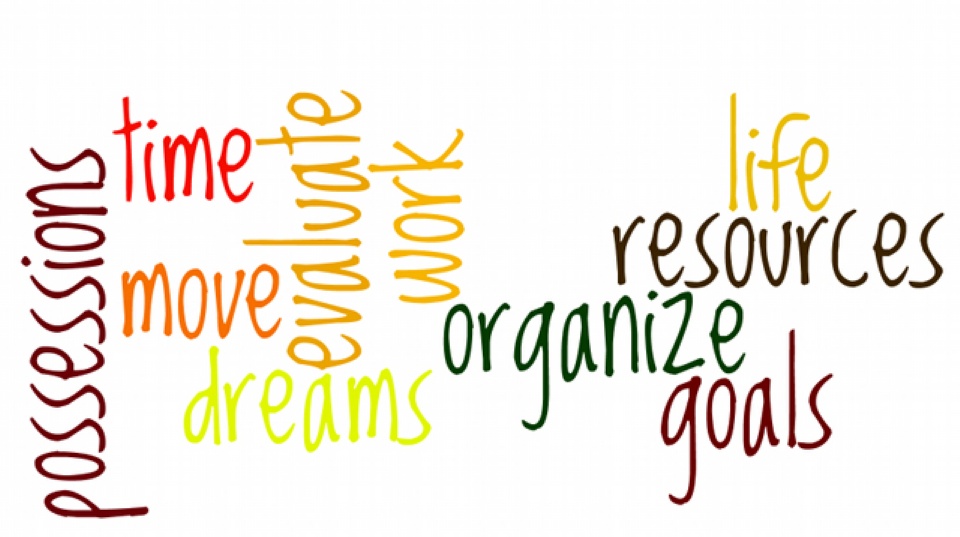For many
youth, this is the time of year when the initial excitement about school is
wearing off. Our children have by now gotten to know teachers expectations, and
gotten used to classmates. What’s left is work.
Some children have already
settled in for a great year. But for
others, the lost pencil case and agenda notes weigh heavy on our hearts… we
worry it’s going to be a difficult year. How do we help our children stay
focused, on track, and do the best they can…especially when we know school
isn’t an easy place for them to be?
As adults
we multi-task, follow multiple-step directions, and stay focused despite
interruptions or distractions, even when we’re pushing ourselves through tasks
we don’t enjoy. We know success depends on making plans, controlling our
impulses, persisting, and staying true to our goals. Our children are born with
the capacity to develop those skills, too. Like us, their executive function
part of the brain is responsible for; organizing information, mental
flexibility, and self-control. These skills are essential for success in both
learning and friendships; when youth miss out on opportunities to practice and
become proficient, they have difficulties managing routine tasks and inevitable
frustrations. We as parents have an essential role in providing them with
supports they need to build these skills and achieve success.
Many of the
daily skills required to help build executive function can be found in
Organization Skills Training (OST). Our youth can learn to optimize brain
functioning, minimize distractions, and say no to themselves. Here are few tips
that can help;
Take Time To Plan; Students often underestimate
how much time it actually takes to complete tasks. Breaking it up into smaller
chunks can help. A project, book report, or spelling test is more manageable,
and less daunting when done a little bit at a time. Using charts, calendars, and
timers to track “task time” can make a difference.
Organization; Many parents not so fondly recall the “mad dash home”
to pick up a forgotten item (think sneakers, lunch, and homework). Developing
routines and having special places to put things (backpack, folders for
assignments, etc.) can go a long way to minimizing emergencies. Over time,
positive habits develop and become part of life.
Praise & Rewards; Despite ongoing
controversy, research supports use of small regular rewards combined with
praise to encourage our children with difficult tasks. Many of us reward
ourselves with pleasurable activity after less pleasing tasks. Small treats and
praise may not make your child love work, but it might make starting task a
little easier! In the end, it turns out that the magic of staying focused is
about helping our young people realize they don’t have to be perfect… they just
need to stay focused enough a little bit each week to make this year count.
DM’s Organizational Skills Training can help, contact DM for more info!
CONTACT
DM FAMILY
SERVICES
“Effective Executive Function is like having an air traffic control
system at a busy airport to manage arrivals and departures of many planes on multiple
runways. DM’s Organizational Skills Training can help”
OFFICES IN MONTREAL, WEST ISLAND, & LAVAL
514.483.9339 / www.dmfamilyschool.com

 In The Latest Issue:Latest Issue:
In The Latest Issue:Latest Issue:
- A Bittersweet Farewell
- The new Laval Aquatic Co...
- The End of an Era:
Articles
Calendar
Virtual- ANNUAL TEACHER APPRECIATION CONTEST
- APPUI LAVAL
- ARTS & CULTURE
- CAMPS
- CAR GUIDE
- CCIL
- CENTENNIAL ACADEMY
- CHARITY FUNDRAISING
- CITYTV
- COSMODÔME
- COMMUNITY CONNECTIONS
- COVER STORY
- DINA DIMITRATOS
- ÉCOLE SUPÉRIEURE DE BALLET DU QUÉBEC
- EDITORIALS
- ÉDUCALOI
- EDUCATION
- EMPLOYMENT & ENTREPRENEURSHIP
- FÊTE DE LA FAMILLE
- FÊTE DU QUARTIER SAINT-BRUNO
- FAMILIES
- FESTIVAL LAVAL LAUGHS
- FÊTE DE QUARTIER VAL-DES-BRISES
- FINANCES
- GLI CUMBARE
- GROUPE RENO-EXPERT
- HEALTH & WELL-BEING
- 30 MINUTE HIT
- ANXIETY
- CHILDREN`S HEALTH & WELLNESS
- CLOSE AID
- DENTAL WELLNESS
- EXTREME EVOLUTION SPORTS CENTRE
- FONDATION CITÉ DE LA SANTÉ
- GENERAL
- HEARING HEALTH
- MESSAGES FROM THE HEALTH AGENCY OF CANADA
- MENTAL HEALTH
- SEXUALITY
- SOCIAL INTEGRATION
- SPECIAL NEEDS
- TEENS
- THE NUTRITION CORNER
- THE NUTRITION CORNER - RECIPES
- VACATION DESTINATION
- WOMEN'S FITNESS
- WOMEN'S HEALTH
- HILTON MONTREAL/LAVAL
- HOME & GARDEN
- INTERNATIONAL WOMEN'S DAY
- JAGUAR LAVAL
- LAVAL À VÉLO
- LAVAL FAMILIES TV SHOW
- LAVAL FAMILIES MAGAZINE CARES
- LAVAL URBAN IN NATURE
- LE PARCOURS DES HÉROS
- LES PETITS GOURMETS DANS MA COUR
- LEON'S FURNITURE
- LEONARDO DA VINCI CENTRE
- LFM PREMIERES
- LIFE BALANCE
- M.P. PROFILE
- MISS EDGAR'S AND MISS CRAMP'S SCHOOL
- MISSING CHILDREN'S NETWORK
- NETFOLIE
- NORTH STAR ACADEMY LAVAL
- OUTFRONT MEDIA
- PASSION SOCCER
- PARC DE LA RIVIÈRE-DES-MILLE-ÎLES
- PÂTISSERIE ST-MARTIN
- PIZZERIA LÌOLÀ
- PLACE BELL
- PORTRAITS OF YOUR MNA'S
- ROCKET DE LAVAL
- SACRED HEART SCHOOL
- SCOTIA BANK
- SHERATON LAVAL HOTEL
- SOCIÉTÉ ALZHEIMER LAVAL
- STATION 55
- STL
- SUBARU DE LAVAL
- TECHNOLOGY
- TEDXLAVAL
- TODAY`S LAURENTIANS AND LANAUDIÈRE
- TODAY`S LAVAL
- WARNER MUSIC
- THIS ISSUE
- MOST RECENT
Magazine
Hocus Pocus… Let’s Help Them Stay Focused
Articles ~e 105,7 Rythme FM 4 chemins Annual Teacher Appreciation Contest Appui Laval Arts & Culture Ballet Eddy Toussaint Camps THIS ISSUE MORE...
CONTESTS Enter our contests
CONTESTS Enter our contests
CALENDAR
Events & Activities
COMMUNITY Posts Events
PUBLICATIONS Our Magazine Family Resource Directory
LFM BUSINESS NETWORK Learn more
COUPONS Click to save!
COMMUNITY Posts Events
PUBLICATIONS Our Magazine Family Resource Directory
LFM BUSINESS NETWORK Learn more
COUPONS Click to save!
SUBSCRIPTIONS
Subscribe to the magazine
Un-Subscribe
E-NEWSLETTER Subscribe to our E-newsletter Un-Subscribe
WRITE FOR US Guidelines & Submissions
POLLS Vote today!
E-NEWSLETTER Subscribe to our E-newsletter Un-Subscribe
WRITE FOR US Guidelines & Submissions
POLLS Vote today!
ADVERTISERS
How to & Media guide
Pay your LFM invoice
SUGGESTIONS Reader's Survey Suggest a Listing
LFM About Us Our Mission Giving Back Contact Us
SUGGESTIONS Reader's Survey Suggest a Listing
LFM About Us Our Mission Giving Back Contact Us
 PICK-UP LOCATIONS
Get a copy of LFM!
PICK-UP LOCATIONS
Get a copy of LFM!
TERMS & CONDITIONS Privacy | Terms
ISSN (ONLINE) 2291-1677
ISSN (PRINT) 2291-1677
Website by ZENxDESIGN



 BY:
BY: 
Tweet
Share